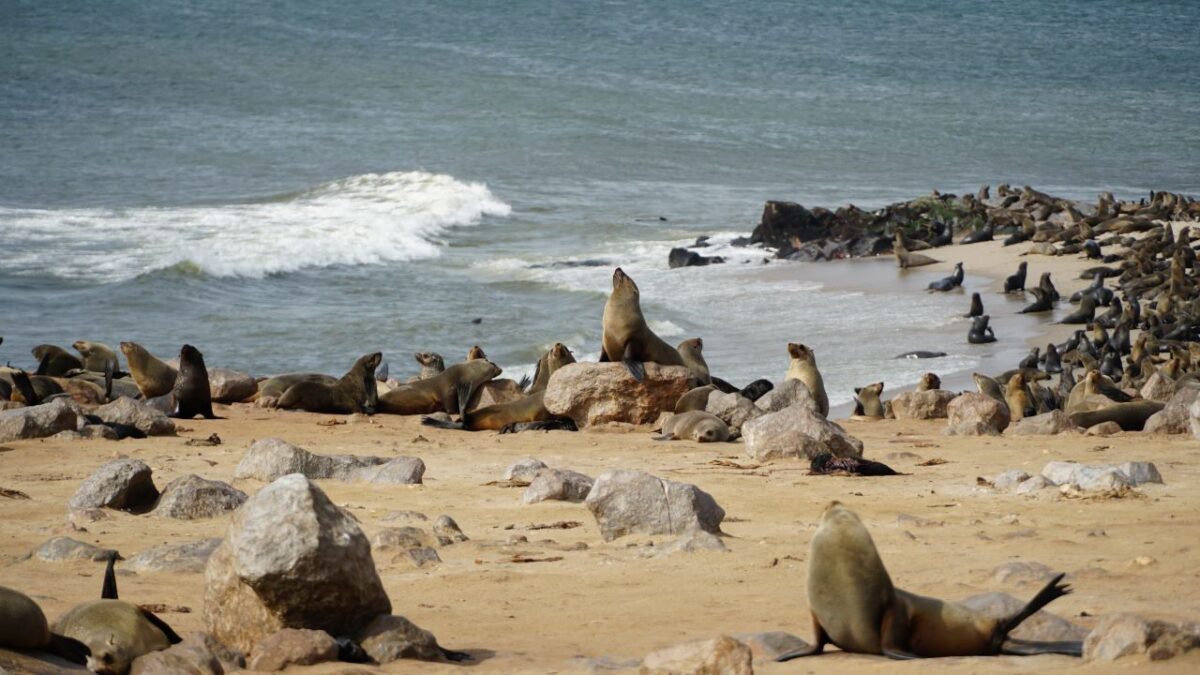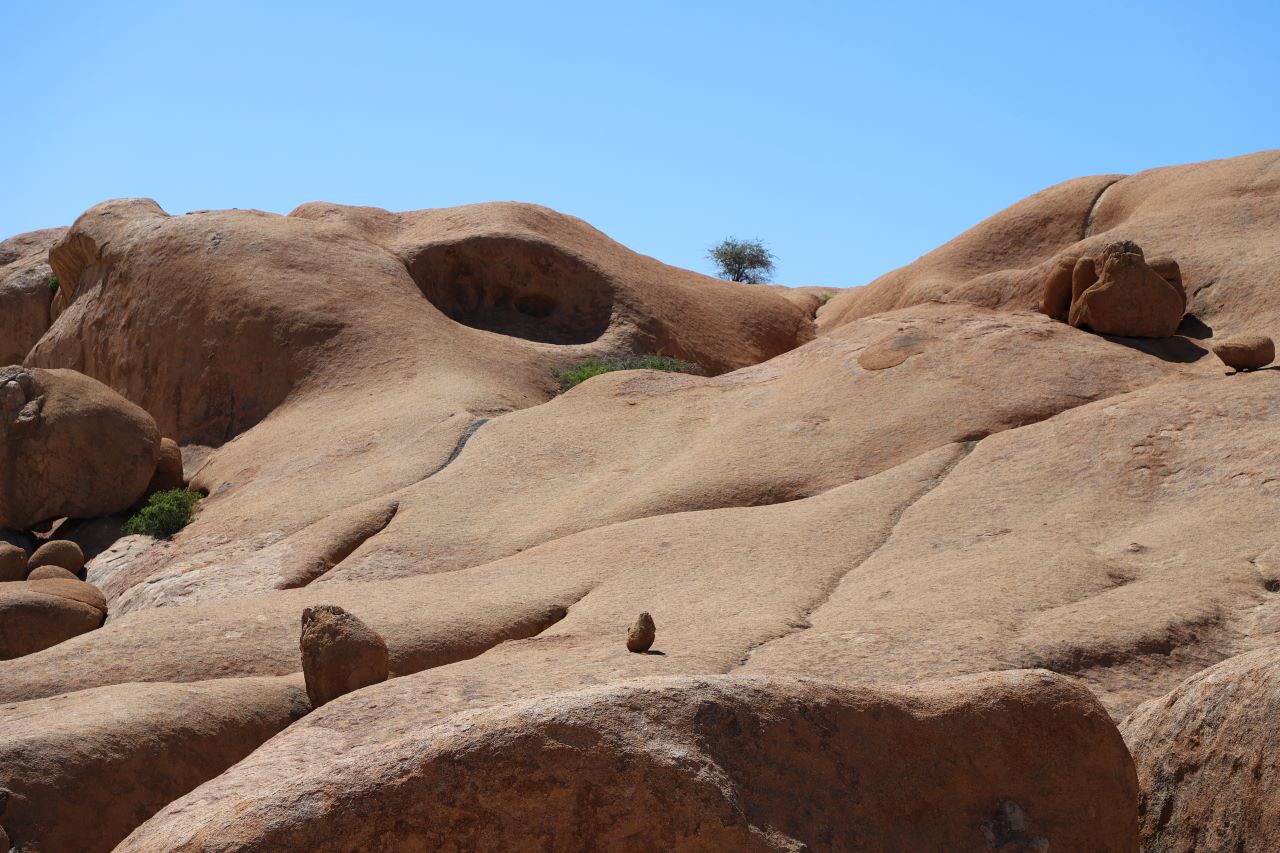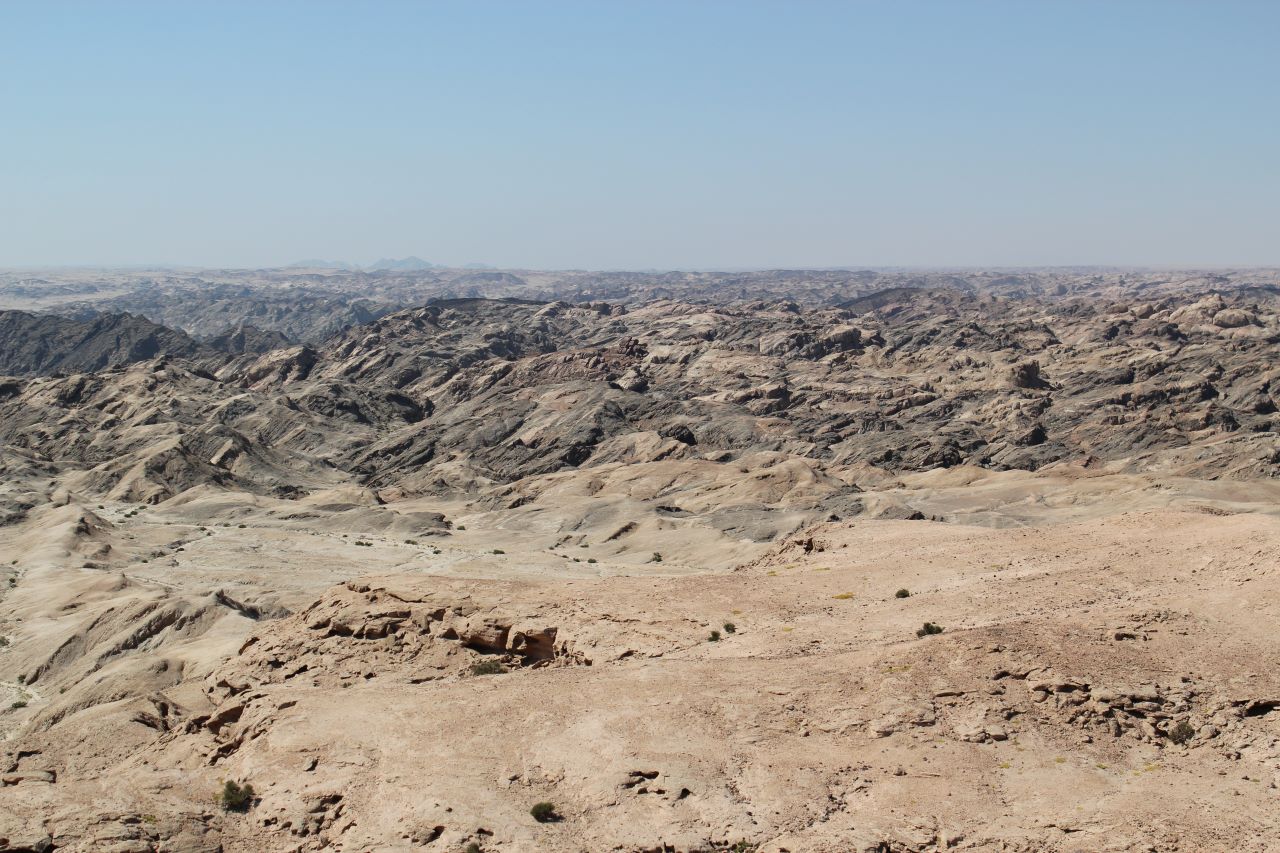Cape Cross Seal Colony: A Fascinating Wildlife Sanctuary in Namibia
Located on the rugged Atlantic coastline of Namibia, the Cape Cross Seal Colony is one of the largest and most impressive seal colonies in the world. Stretching along a remote stretch of coastline near the Skeleton Coast, this unique natural attraction offers an extraordinary opportunity to witness one of nature’s most captivating spectacles.
A Brief History of Cape Cross
Cape Cross, named by Portuguese explorer Diego Cão in 1486, is steeped in history. Cão erected a cross at the site to mark his arrival, and it became an important navigational landmark. The region’s stark, windswept landscape and icy ocean currents may seem inhospitable, but it provides a perfect environment for the Cape fur seals, which have thrived here for centuries.
The Seal Colony
The Cape Cross Seal Colony is home to over 200,000 Cape fur seals, making it one of the largest colonies in Africa. The seals are highly social creatures, and their sheer numbers create an incredible cacophony of sounds and activity. Visitors to Cape Cross can observe these fascinating animals up close as they engage in a variety of activities, from sunbathing on the rocky shores to playful interactions in the surf.
Conservation Efforts
Efforts to protect and preserve the Cape Cross Seal Colony are crucial, given the size of the colony and the challenges it faces. Key conservation measures include:
- Protected Status: Cape Cross is a designated protected area within the Namib-Naukluft National Park. This status helps safeguard the seals and their habitat from commercial exploitation and development.
- Research and Monitoring: Ongoing research and monitoring programs are in place to track the health and dynamics of the seal population. The Ministry of Environment, Forestry and Tourism (MEFT) of Namibia oversees these efforts, providing crucial data on the impacts of environmental changes and human activities on the colony.
- Anti-Poaching: Measures are taken to prevent poaching and illegal fishing, which could threaten the seals’ food sources and overall well-being. The Namibian Police and MEFT collaborate on law enforcement patrols to ensure the area remains secure.
- Education and Awareness: Various organizations, including the Namibian Nature Foundation (NNF) and local conservation groups, work to raise awareness about the importance of protecting the seal colony. Educational programs aim to inform visitors about the ecological significance of Cape Cross and the need for ongoing conservation efforts.
- Collaborations and Support: International organizations such as the World Wildlife Fund (WWF) and the Wildlife Conservation Network (WCN) support conservation initiatives at Cape Cross through funding, research, and advocacy. Their involvement helps ensure that conservation efforts are effective and sustainable.
What to Expect When Visiting
- Guided Tours: Visitors can take guided tours to learn more about the seals and the conservation efforts in place. Guides provide valuable insights into the seals’ activities, their habitat, and the challenges they face.
- Observation Points: The colony is accessible via a network of observation points, allowing visitors to view the seals safely. The best times to visit are during the breeding season (November to December) and the moulting period (April to June) when the colony is most active.
- Weather Considerations: The coastal weather can be quite harsh, with strong winds and cool temperatures. Be prepared for changing conditions and dress warmly. The environment is rugged and often barren, so sturdy footwear is recommended.
Nearby Attractions
While visiting Cape Cross, consider exploring other nearby attractions:
- Skeleton Coast National Park: Known for its dramatic landscapes and shipwrecks, this park offers a starkly beautiful contrast to the seal colony’s bustling activity.
- Damaraland: Further inland, Damaraland features ancient rock engravings, unique geological formations, and the opportunity to see desert-adapted wildlife.
Why Cape Cross Seal Colony Should Be on Every Wildlife Enthusiast’s Bucket List
The Cape Cross Seal Colony is a remarkable destination that offers a rare glimpse into the lives of one of the world’s largest seal populations. Its stunning coastal setting, combined with the dedicated conservation efforts from Namibian authorities and international organizations, makes it a must-visit for wildlife enthusiasts and nature lovers. Whether you’re captivated by the seals’ playful antics or intrigued by the harsh, beautiful landscape, Cape Cross provides an unforgettable experience that highlights the wonders of Namibia’s natural world.





